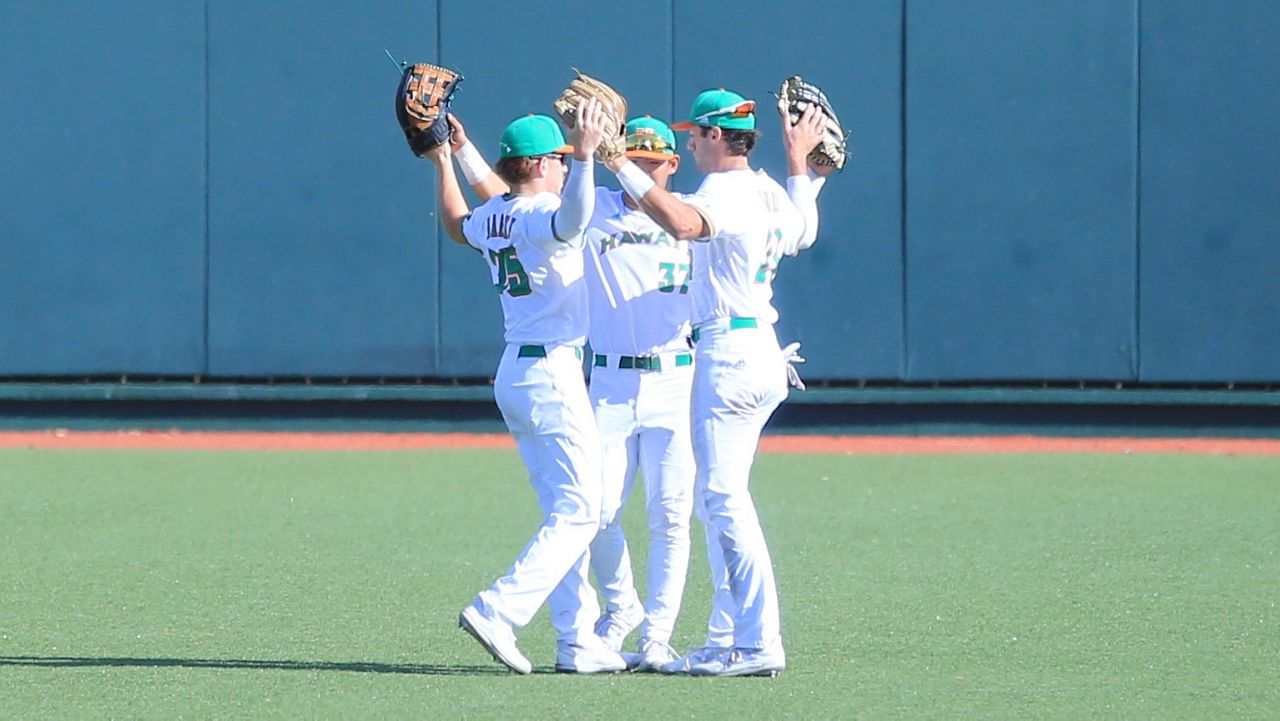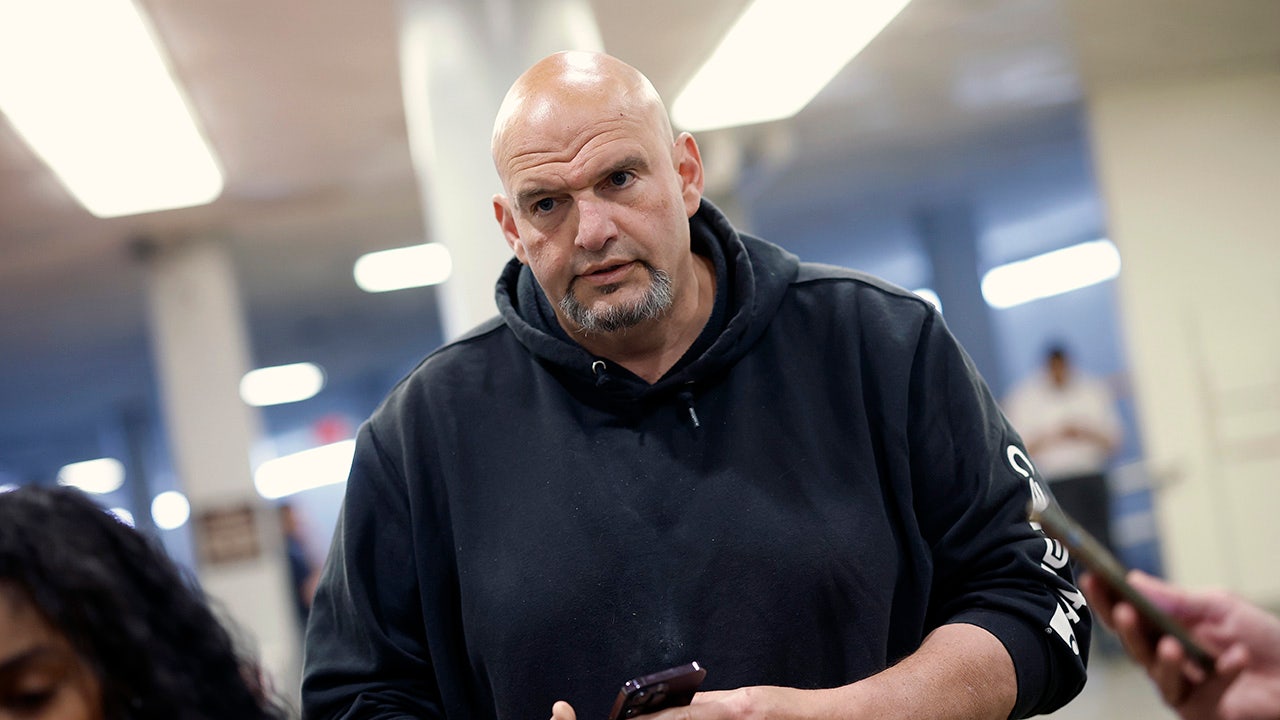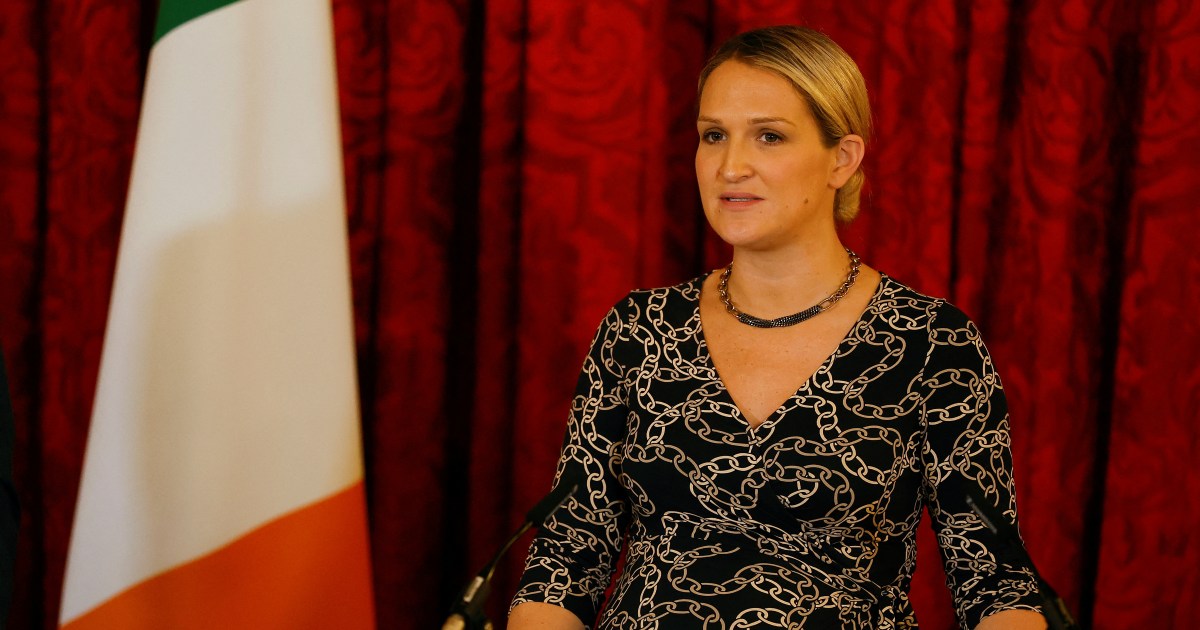Business
Laid-off food workers claim their 'right to return' to jobs was violated at Hotel Figueroa
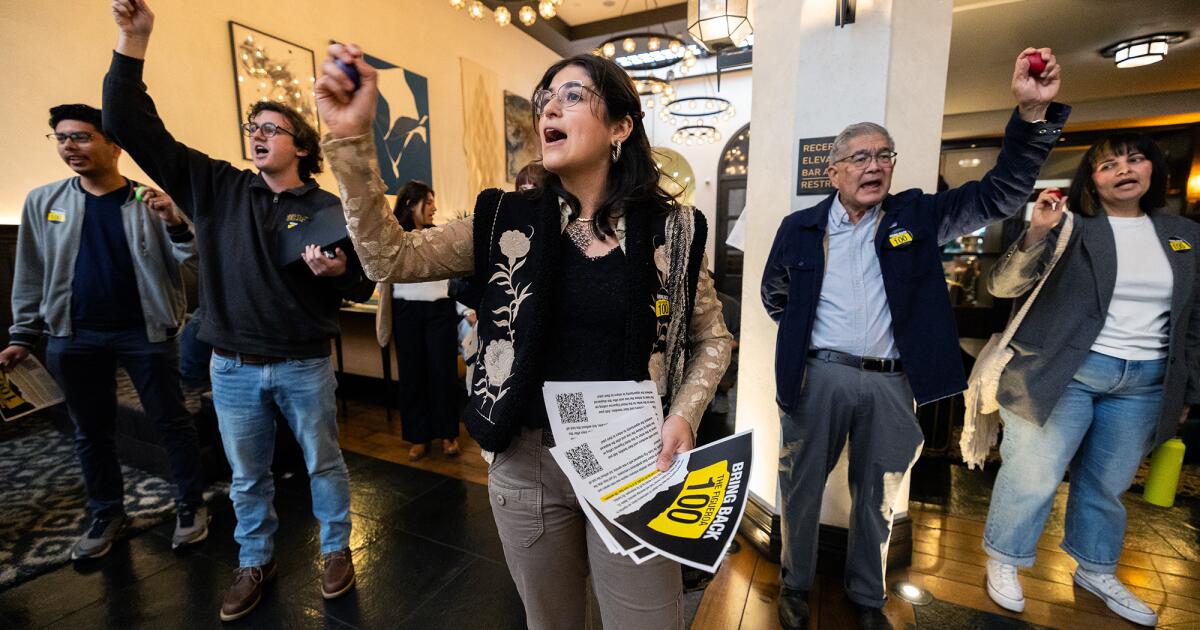
Two days after the food hospitality operator at a fashionable downtown hotel shuttered its restaurants and laid off its food and beverage employees, a new third-party management company moved in and hired a whole new set of workers, according to a complaint filed with the Los Angeles city attorney’s office.
The laid-off food and beverage laborers had attempted to unionize months earlier. They allege that Hotel Figueroa and hospitality operator the Botanical Group left them out of the hiring, potentially violating a city “right to return” law that requires that new hotel owners or new operators retain the site’s employees for a transitional period, according to the complaint.
A Feb. 21 letter addressed to the city attorney’s office asks for an investigation. A spokesperson for the office confirmed receipt of the complaint but wouldn’t comment further on the matter.
“The company closed without retaining workers in violation of the recall law,” said Kurt Petersen, co-president of Unite Here Local 11, which is aiding the hotel workers in their effort. ”It is beyond outrageous to see wealthy companies … treat their long-standing workers like they are disposable.”
The hotel is denying the premise of the workers’ complaint.
In a prepared statement, a spokesperson for Hotel Figueroa said its ownership is “acting in accordance” with the Los Angeles Hotel Worker Retention Ordinance, which requires that new hotel owners or operators retain the site’s employees for a transitional period. The 2006 ordinance initially applied only to hotels in the LAX corridor. In 2022, a new hotel worker protection ordinance expanded the existing law to include all city hotels with more than 50 guestrooms.
The retention rule is intended to protect laid-off hotel workers so that if a hotel undergoes a change in control, the successor hotel employer is required to hire previous employees for a 90-day transition period and may not discharge these employees without cause.
Pastor Mike Kinman, right, walks out of the Hotel Figueroa after demonstrating in support of restaurant workers who were laid off.
(Brian van der Brug / Los Angeles Times)
The Hotel Figueroa spokesperson said there isn’t a new food and beverage operator in place, but that they are instead working with a “consultant to provide limited F&B [food and beverage] service.” Several former staff members of the former third-party management group returned to the hotel’s food and beverage outlets, she said, and they expect more will return in the next few weeks.
When asked how many non-managerial staff had been hired back, the spokesperson said the company wouldn’t comment further.
The Botanical Group did not respond to emails and message for comment.
The 2006 retention ordinance was drafted in response to mass firings that occurred in 2000 at a Wyndham hotel near LAX. The hotel closed and laid off more than 200 employees. The hotel reopened as the Radisson Hotel LAX about a year later but did not hire all of the former Wyndham workers, even though more than 100 of them submitted applications.
Since then, the law has been invoked a handful of times, said Maria Hernandez, a spokeswoman with Unite Here Local 11.
On a recent Friday afternoon, a bartender at the reopened Bar Magnolia said he and the other bartenders present were new to the job, as well as other non-management employees. The space once occupied by Sparrow Italia, which served coastal Italian dishes and cocktails in an indoor-meets-outdoor setting, remained closed.
A dishwasher, line cook and prep cook interviewed previously about Hotel Figueroa also said they had been laid off and not rehired by the new operator.
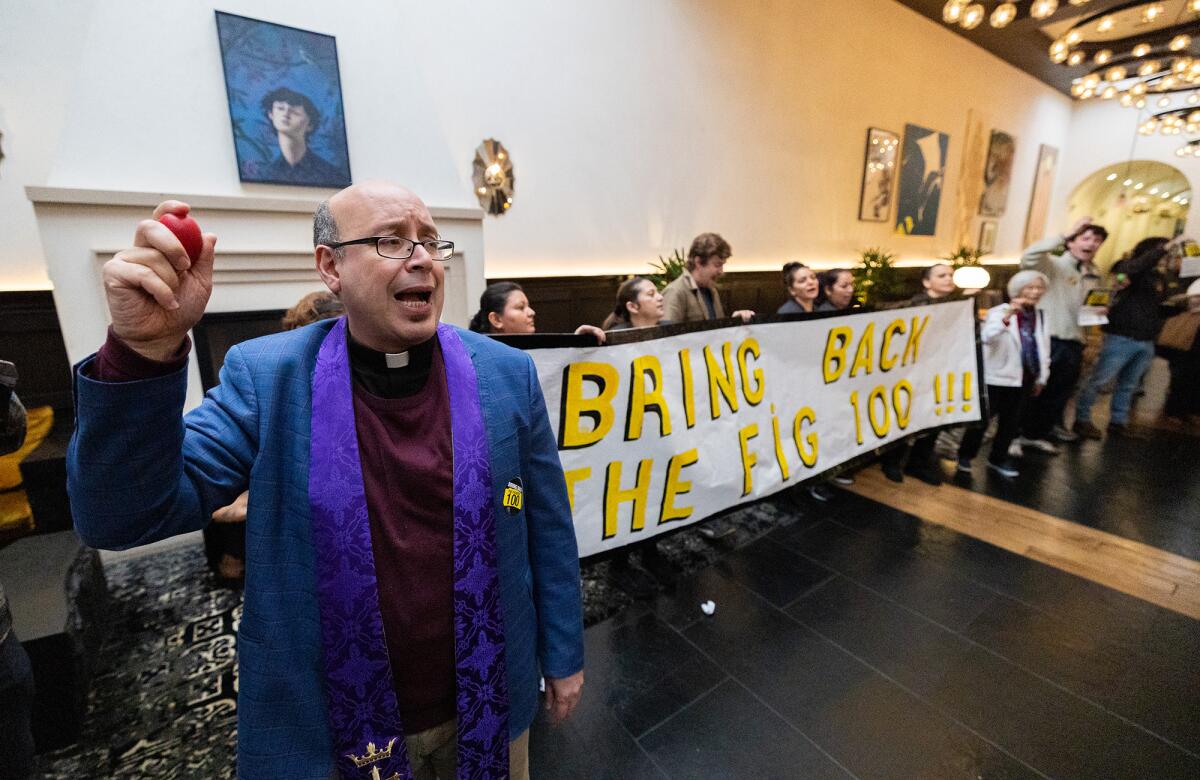
Rev. Edgar Rivera Colon, left, exhorts patrons to support the rehiring of more than 100 workers who lost their jobs.
(Brian van der Brug / Los Angeles Times)
Workers sought to organize
Tension between the former hospitality group Noble 33 and its employees at Hotel Figueroa started soon after the third-party management took over food and beverage operations for the hotel in 2021, according to workers and union organizers who spoke with The Times.
Workers said they were forced to take on multiple tasks without more pay as their colleagues left and management failed to back-fill positions.
On Dec. 8, back-of-house food and beverage workers who worked for Noble 33 notified their management that they intended to form a union, and submitted cards to do so.
Six days later, hospitality operator Noble 33 announced it would close Sparrow Italia, Café Fig, Bar Magnolia, the Cafeteria and La Casita at Driftwood at the famed hotel, a historic building in downtown L.A. that for the last two decades built a following for its Mediterranean-inspired space and stylish dining rooms.
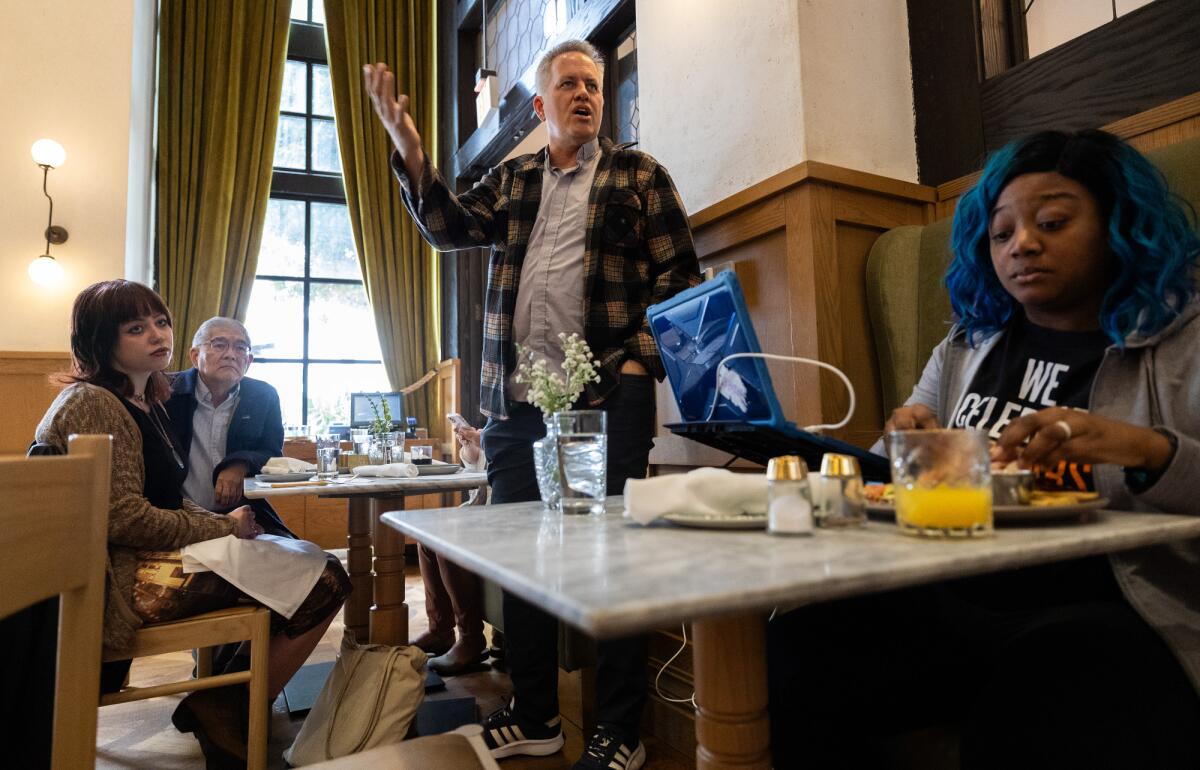
Rev. Andrew Schwiebert, center, talks with diners as he and dozens of others participate in a “water-in” at the Café Fig.
(Brian van der Brug / Los Angeles Times)
Noble 33 followed through on the closure. On Feb. 11, the company laid off an estimated 100 non-management employees and closed the Hotel Figueroa’s restaurants.
Maria Ibarra, a cook for Noble 33 at the hotel, said she was laid off and not rehired. She now faces unemployment.
“The owners thought they could just replace us overnight and that we would give up and walk away,” Ibarra said. “My co-workers and I will not do that. We have rights.”
Wednesday, Unite Here Local 11, workers and religious leaders called for a boycott of the hotel and hospitality group, at a morning press conference in front of Hotel Figueroa.
The group also delivered a letter signed by nearly 500 people demanding that the hotel bring back the laid-off workers.
“We call on you to immediately offer to return the workers to their employment at the hotel and compensate them for time missed,” the letter said.
The boycott is just the latest move taken by workers and the union.
On Friday, nearly 40 people picketed at Hotel Figueroa — seven of them hotel housekeepers alongside about 30 community members and religious leaders with Clergy and Laity United for Economic Justice, a faith-based advocacy group based near downtown. They shouted “Bring them back” and held a sign that read “Bring back the Fig 100.”

Business
Angelina Jolie blames Brad Pitt’s NDA for scuttling winery sale, alleges abuse before plane altercation

Angelina Jolie’s legal team filed a motion Thursday to acquire Brad Pitt’s communications stemming from an “all-encompassing” nondisclosure agreement he wanted that purportedly tanked the sale of his ex-wife’s share of their Chateau Miraval winery to him.
The former Hollywood power couple’s protracted legal dispute over the winery — and its legacy for their six children — took another turn as Jolie’s team asked a judge to compel Pitt and his company, Mondo Bongo, to produce documents pertaining to his calling for a “more onerous NDA” in order to purchase Jolie’s share of the south-of-France winery.
The documents Jolie seeks, according to the Thursday filing in Los Angeles County Superior Court, are “highly relevant” and also likely to yield admissible evidence in the case, her team argued.
Her attorney, Paul Murphy, also accused the “Once Upon a Time … in Hollywood” Oscar winner of “unrelenting efforts to control and financially drain” Jolie, as well as “attempting to hide his history of abuse, control, and coverup.”
An attorney and a publicist for Pitt declined to comment Thursday on the new filing and allegations of prior abuse.
Pitt has accused Jolie and her company, Nouvel, of secretly selling her share of their winery and family home to “seize profits she had not earned and returns on an investment she did not make.” He claimed in a February 2022 lawsuit and subsequent amended complaints that his investment in the business “exceeded Jolie’s by nearly $50 million” and that Jolie had reneged on exclusive buyout negotiations they had agreed on in early 2021, when she originally said she wanted out of the business.
Pitt has been seeking a jury trial and the undoing of Jolie’s October 2021 sale to the Tenute del Mondo wine group, a subsidiary of the Stoli Group.
In October 2022, Jolie filed a cross-complaint that argued that the couple had no agreement regarding two-party consent to the sale of either party’s interest in the property. She also detailed allegations of abuse that prompted her to file for divorce from Pitt in 2016, ending their two-year marriage and much-talked-about 10-year romantic relationship. (The actors, although legally unmarried since 2019, have not yet finalized their drawn-out divorce.)
The “Inglourious Basterds” star has also complained that he can no longer enjoy his private residence in France, as it is now co-owned by strangers; Jolie contended Thursday that she and their children have not returned to the French estate since leaving it and boarding the fateful September 2016 flight that precipitated Jolie filing for divorce five days later.
In Thursday’s motion to compel, reviewed by The Times, attorneys for the “Girl, Interrupted” Oscar winner asked again for responses from Pitt to help them figure out his reason for pulling out of their implied agreement for him to buy Jolie’s stake in the winery. Pitt’s decision to pull out of the sale, her attorney said, “nearly broke” Jolie.
“If that sale had been completed, this lawsuit never would have happened. But at the last minute, Pitt ‘stepped back’ from his agreement to buy Jolie’s interest in Miraval, and the deal collapsed. The question at the heart of this case — and at the center of this motion — is why,” the motion said.
The answer, her attorney said, has to do with sealed documents Jolie submitted in the ex-couple’s separate but simultaneous custody dispute. The new filing referred to sealed March 2021 documents — titled “Testimony Regarding Domestic Violence” — that “apparently enraged Pitt” and led to him “stepping back” from the sale.
“When Jolie filed the evidence in the custody suit, she was careful to file it under seal so that no member of the public could see it. But Jolie’s sealed filing, which included emails, summaries of the family’s expected testimony, and other evidence, caused Pitt to fear that the information could eventually become public,” the document said.
Pitt then decided he could no longer rely on Jolie’s voluntary efforts to keep things private and demanded that she “contractually bind herself to that silence,” her filing said.
With that, her team indicated there was abuse of Jolie that predated the contentious 2016 private-plane flight. In referring to that sealed filing in the custody case — as well as another titled “Testimony of Minor Children” — her team argued that Pitt tried to force a more sweeping NDA on Jolie to conceal his alleged “personal misconduct, whether related to Miraval or not.”
Her team is seeking Pitt’s communications with the FBI, U.S. attorney’s office, the L.A. County Department of Children and Family Services and the Los Angeles Police Department regarding the private flight. She is also seeking information from DCFS about its investigation, drug and alcohol testing and a safety plan the agency purportedly required Pitt to undertake to address his conduct.
“While Pitt’s history of physical abuse of Jolie started well before the family’s September 2016 plane trip from France to Los Angeles, this flight marked the first time he turned his physical abuse on the children as well,” the new motion states.
According to an exhibit on a 2024 court declaration by Jolie attorney Murphy, an offer to turn over many of the communications requested by Jolie’s team was rejected last month by attorney Stella Chang, who told a Pitt attorney via email that his “proposal does not come anywhere close to providing the documents responsive to [the team’s requests], which Ms. Jolie needs to defend herself from Mr. Pitt’s frivolous allegations.”
Pitt was never charged in connection with the plane incident, either by the U.S. attorney’s office or the Department of Children and Family Services, which investigated the incident — and its allegation of child abuse — before the FBI got involved. The FBI decided in November 2016 to close its probe without filing any charges against the actor. People magazine reported that he was drunk during the incident, which “escalated more than it should have,” and asserted that “no one was physically harmed.”
Jolie never pressed charges, the filing said, “as she believed the best course was for Pitt to accept responsibility and help the family recover from the post-traumatic stress he caused.” It also alleged that Pitt refused to seek domestic violence counseling.
Pitt, in a 2017 GQ interview, admitted he had a drinking problem — saying, “I was boozing too much” — but said he was now sober. He said he was going to therapy after first going through two therapists who didn’t work out, and lamented his and Jolie’s marital woes being dragged out and misconstrued by the media with no “delicacy or insight.” Pitt has never argued that his behavior on the 2016 flight was acceptable.
His legal team said in a June 2023 court filing that while Jolie had backed out of the winery sale, purportedly over “restrictive language” requested in a mutual nondisclosure agreement, a year later she proposed an even broader NDA in their divorce case that would have required that “[o]ther than in court pleadings or testimony, neither party shall directly or through a party’s representatives make in a public forum any derogatory remark about the other party.”
The “Thelma & Louise” actor alleged in court documents that Jolie decided to sell her Miraval stake to the Stoli subsidiary after receiving an “adverse custody ruling” in their protracted divorce proceedings.
Pitt’s legal team last summer claimed that Jolie “vindictively” sold her stake in the winery behind his back and alleged that she “sought to inflict harm on Pitt,” subsequently revealing more details about the unraveling of the couple’s relationship. Jolie’s camp at the time insisted — and continues to do so in the new filing — that Pitt refused to complete a Miraval sale with Jolie “unless she agreed to being silenced” about his alleged abuse.
Now her team is claiming that Pitt attempted to cover up the alleged abuse by objecting to the children testifying on their custody preferences. The filing includes a May 2021 text message from Jolie to a friend (as an exhibit) relaying that she tried to sell the winery to Pitt per their agreement but that he was “really not being fair” and demanding “a lot of punishing restrictions.” The filing also outlined for the first time the language of the “more onerous NDA.”
Said restrictions, per the motion, were put forth in an “expansive” NDA that stated that the parties could not make any statements or take actions that would “disparage, defame, or compromise the goodwill, name, brand or reputation of Miraval Provence or any of its affiliated or direct and indirect shareholders,” including Jolie, Pitt, Pitt’s business partner and good friend Marc Perrin, and Familles Perrin SAS.
It also stated that the parties could not “commit any other action that could likely injure, hinder or interfere with the Business, business relationships or goodwill of Miraval Provence, its affiliates, or its direct and indirect shareholders.” Jolie refused to sign it, and “by June 3, 2022, the deal was dead,” the motion said.
Pitt’s NDA in the failed winery deal would have required, according to 2023 court documents filed by his legal team, that “[a]t no time for a legally binding period of four (4) years following the Closing Date, and, on a good faith basis, any period thereafter, shall the Parties (i) make any statements, or take any other actions whatsoever, to disparage, defame, or compromise the goodwill, name, brand or reputation of Miraval Provence or any of its affiliates or direct and indirect shareholders,” including Jolie, Perrin, Familles Perrin SAS and Pitt, who has been the celebrity face of the winery, so as not to hurt or hinder the business.
Jolie accused Pitt of gaslighting her and, according to the new documents, signed a power of attorney at that point authorizing her European lawyer, Laurent Schummer, to take over the sale process.
“Mr. Pitt refused to purchase Ms. Jolie’s interest when she would not be silenced by his NDA,” Jolie attorney Murphy, managing partner at the law firm Murphy Rosen LLP, said Thursday in a statement to The Times.
“By refusing to buy her interest but then suing her, Mr. Pitt put directly at issue why that NDA was so important to him and what he hoped it would bury: his abuse of Ms. Jolie and their family. After eight months of delays, this motion asks the Court to force Mr. Pitt to finally produce that evidence.”
A person close to Jolie who was not authorized to speak publicly about the case told The Times that Pitt “is drawing all this out of Angelina.”
“She does not want to be here, she does not want to be raising any of these facts, and she is doing it only because Pitt’s lawsuit against her is forcing her to defend herself. It’s incredibly sad and she just wishes he could move on and let her be,” the person said.
The person added that Jolie’s lawyers have emails, photos and testimony that was presented under seal in the custody case that would help her in this matter. However, the person said, if the case goes to trial, she “will be forced to use that evidence in the trial whether she wants to or not.”
Times assistant editor Christie D’Zurilla contributed to this report.
Business
Federal labor investigators say L.A. poultry plant used child labor and tried to cover it up
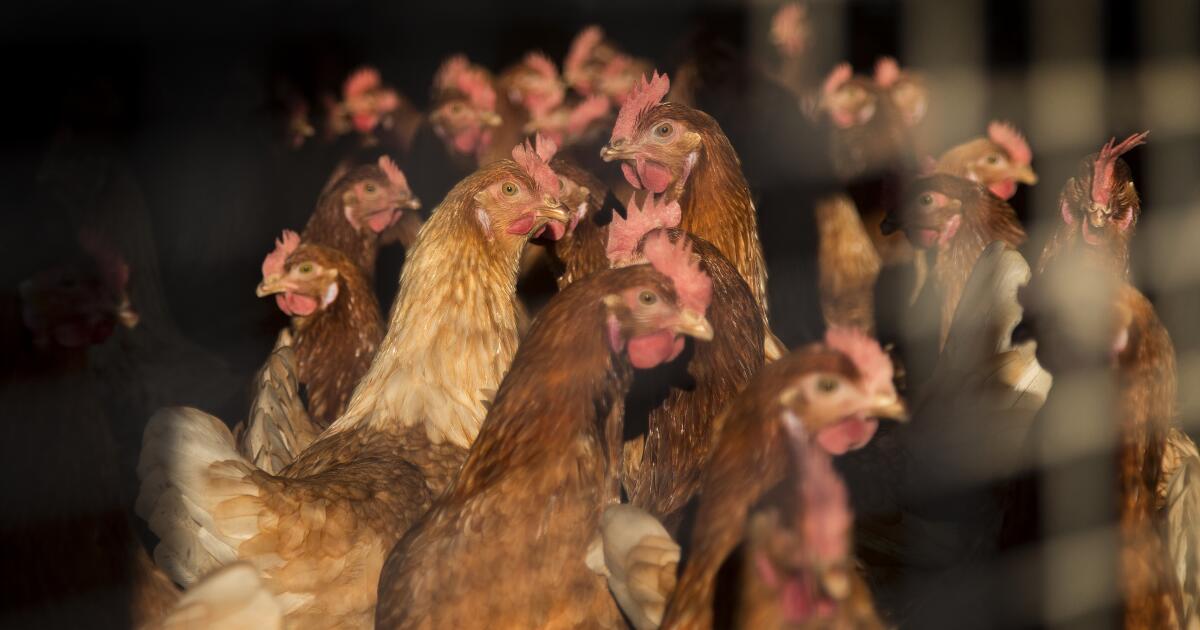
A federal judge issued a temporary restraining order on Monday to block a poultry processing plant in the city of Irwindale from using “oppressive” child labor.
The order came after investigators with the U.S. Department of Labor filed a lawsuit on Saturday alleging the poultry processor and its affiliated companies illegally employed children under the age of 18 to debone raw meat with sharp knives.
The department is seeking action forcing involved companies to forfeit money they made from selling products processed in facilities where minors were allegedly made to work in dangerous conditions.
The judge’s order involves three companies in the San Gabriel Valley — L & Y Food, Moon Poultry and JRC Culinary Group — that are all either owned, operated or managed by Fu Qian Chen Lu, who is also named in the lawsuit.
The Labor Department said in court documents that the companies continued to deliver and sell products even after agreeing to voluntarily refrain from shipping products following accusations of their use of child labor, and refused to provide information to investigators.
The companies hid 794 boxes of processed chicken and seven 1500-pound bins of chicken from investigators visiting the Irwindale facility, according to the court filings .
Federal officials and the poultry companies have presented dueling narratives of the child labor allegations.
Gregory W. Patterson, an attorney representing Chen Lu and other defendants named in the suit, accuses the Labor Department of planting an underage worker in the facility as part of its investigation, a claim the department has dismissed as “baseless.”
The crackdown by federal investigators comes as some of the country’s biggest consumer brands have come under broad scrutiny for child labor in their domestic supply chains amid revelations that children are working throughout American manufacturing and food production.
Investigators discovered children deboning poultry at the plant after visiting the facility in the city of Irwindale on Mar. 20 for a civil search warrant, the lawsuit said. Operators of the facility continued to process products, even after the Labor Department raised objections during its search warrant, in violation of federal laws prohibiting sale of products “tainted by child labor,” according to the lawsuit.
The “hot goods” provision of the Fair Labor Standards Act prohibits companies from selling products from locations flagged for child labor use in the prior 30 days.
U.S. District Judge Otis D. Wright II in his Monday decision issued a temporary restraining order requiring the businesses to stop using child labor, provide the Labor Department with information it is requesting related to its investigation, and refrain from shipping any poultry from facilities accused of employing child labor.
“In light of the immediacy of irreparable harm pending the Court’s review of this action, the Court finds a temporary restraining order warranted,” Wright wrote in his order on Monday.
Barring immediate action, he said, companies named in the lawsuit “will continue to employ oppressive child labor to the risk of minors’ life and limb; hot goods may enter the stream of commerce; and Defendants will continue to thwart Plaintiff’s investigation.”
Patterson, the attorney representing Chen Lu and other defendants, said in an emailed statement that the labor department had a 17-year-old “gain employment with Moon Poultry under false pretenses by presenting a fake government identification” and “directed this person to work in a hazardous area of the Moon Poultry facility in Irwindale.”
Patterson alleged that the Labor Department aimed to manufacture a child labor claim to “strengthen its negotiating hand” in an investigation about overtime wages that had not been paid to workers.
“The defense counsel’s allegations are false. The Labor Department has previously responded to the defense counsel on this issue, but he has nevertheless chosen to press his baseless claims,” said Marc Pilotin, regional solicitor for the Labor Department, in an emailed statement.
The Labor Department has investigated other poultry processing plants in California in recent months.
In December, federal investigators found grueling working conditions at two poultry plants in City of Industry and La Puente operated by Exclusive Poultry Inc. as well as other “front companies” owned by Tony Elvis Bran.
Children as young as 14 stood for long hours cutting and deboned poultry and operating heavy machinery, the labor department said. The workers came primarily from Indigenous communities in Guatemala.
The poultry processor, which supplies grocery stores including Ralphs and Aldi, was ordered to pay nearly $3.8 million in fines and back wages.
An investigation published in early February by the Fresno Bee detailed dangerous and sometimes deadly conditions for primarily Latino immigrant workers at Pitman Farms in the Central Valley, which produces the Mary’s Free Range Chicken brand.
Business
Money Talk with Liz Weston: Managing mortgage debt in retirement

Dear Liz: My husband and I are Gen Xers who are renting. We have enough cash from the sale of our last home to make a small down payment on another. If we moved to a more affordable community, we could manage the payments, but it would still be a stretch. That scenario would not have bothered me 10 years ago, but now I’m close to 50. Is it a good idea to take on a mortgage at this point? What is the best way to ensure I can afford to keep the roof over my head when I can no longer work full time?
Answer: Having a mortgage in retirement used to be uncommon, but that’s no longer the case. The Joint Center for Housing Studies of Harvard University found 41% of homeowners 65 and older had a mortgage in 2022, compared with 24% in 1989. Among homeowners 80 and over, the percentage with mortgages rose from 3% to 31%.
The amounts owed have skyrocketed as well. Median mortgage debt for those 65 and older rose more than 400%, from $21,000 to $110,000 (both figures are in 2022 dollars). Median mortgage debt for those 80 and over increased more than 750%, from $9,000 to $79,000.
Mortgage debt doesn’t have to be a crisis if you can afford the home and the payments don’t cause you to run through your retirement savings too quickly. In fact, some retirees are better off hanging on to their loans. It may not make sense to prepay a 3% mortgage when you can earn 5% on a certificate of deposit, for example. Paying off a mortgage early also could leave you “house rich and cash poor,” with not enough savings to deal with emergencies and later-life expenses.
But the key is affordability. A mortgage that’s a stretch now might become easier to afford if your income rises, which was almost a given when you were younger. Now, however, you’re approaching the “dangerous decade” of your 50s, when many people wind up losing their jobs and failing to ever regain their former pay, according to a study by ProPublica and the Urban Institute.
Renting has its risks as well, of course. You aren’t building equity and you typically have little control over rent increases, other than to move.
For help in sorting through your options, consider talking to a fee-only, fiduciary advisor. Among the most affordable options are accredited financial counselors and accredited financial coaches, who typically are well-versed in the money issues facing middle-class Americans. You can get referrals from the Assn. for Financial Counseling & Planning Education at www.afcpe.org.
Dear Liz: I’m a CPA and getting conflicting answers from the Social Security office about a case I’m working on. Both clients are 70 and they’re considering legal separation or divorce. She took Social Security at 62 and receives about $1,500 a month before deductions. He started Social Security at 70 and receives about $4,600. How would her Social Security change at his death or their divorce, if she doesn’t remarry?
Answer: Based on the amounts involved, both parties are receiving their own retirement benefits and those aren’t affected by divorce, said William Reichenstein, a principal at Social Security Solutions, a claiming strategy site. (If the wife were receiving spousal benefits, those would continue after divorce as long as the marriage lasted at least 10 years and she did not remarry.)
If the husband dies and they haven’t divorced, the wife would be entitled to survivor benefits equal to his full monthly benefit amount ($4,600, plus any future cost of living increases). If they divorce and the marriage lasted at least 10 years, she also would be entitled to his full amount. Remarriage wouldn’t affect her divorced survivor benefit since she’s over 60, Reichenstein said.
Liz Weston, Certified Financial Planner®, is a personal finance columnist for NerdWallet. Questions may be sent to her at 3940 Laurel Canyon, No. 238, Studio City, CA 91604, or by using the “Contact” form at asklizweston.com.
-

 Kentucky1 week ago
Kentucky1 week agoKentucky first lady visits Fort Knox schools in honor of Month of the Military Child
-

 World1 week ago
World1 week agoShipping firms plead for UN help amid escalating Middle East conflict
-

 Politics1 week ago
Politics1 week agoICE chief says this foreign adversary isn’t taking back its illegal immigrants
-

 News1 week ago
News1 week agoIs this fictitious civil war closer to reality than we think? : Consider This from NPR
-

 News1 week ago
News1 week agoThe San Francisco Zoo will receive a pair of pandas from China
-

 Politics1 week ago
Politics1 week ago'Nothing more backwards' than US funding Ukraine border security but not our own, conservatives say
-

 World1 week ago
World1 week agoTwo Mexican mayoral contenders found dead on same day
-

 Politics1 week ago
Politics1 week agoRepublican aims to break decades long Senate election losing streak in this blue state

